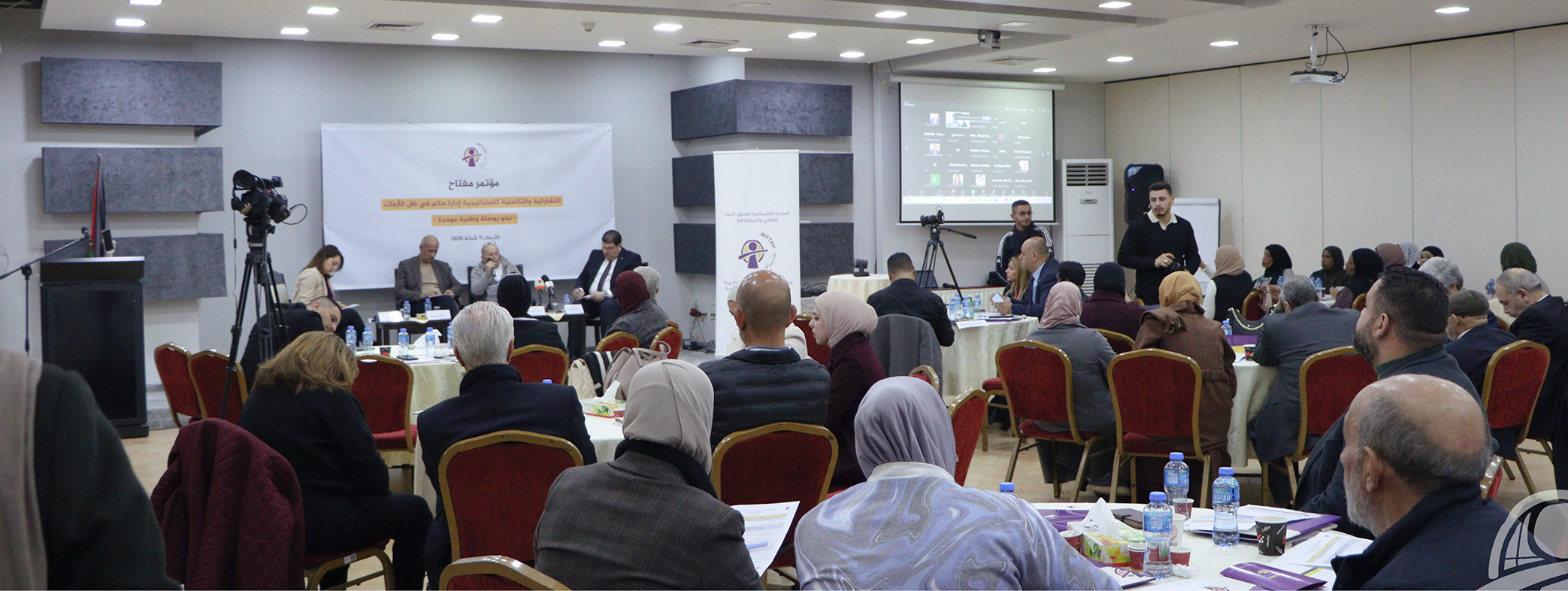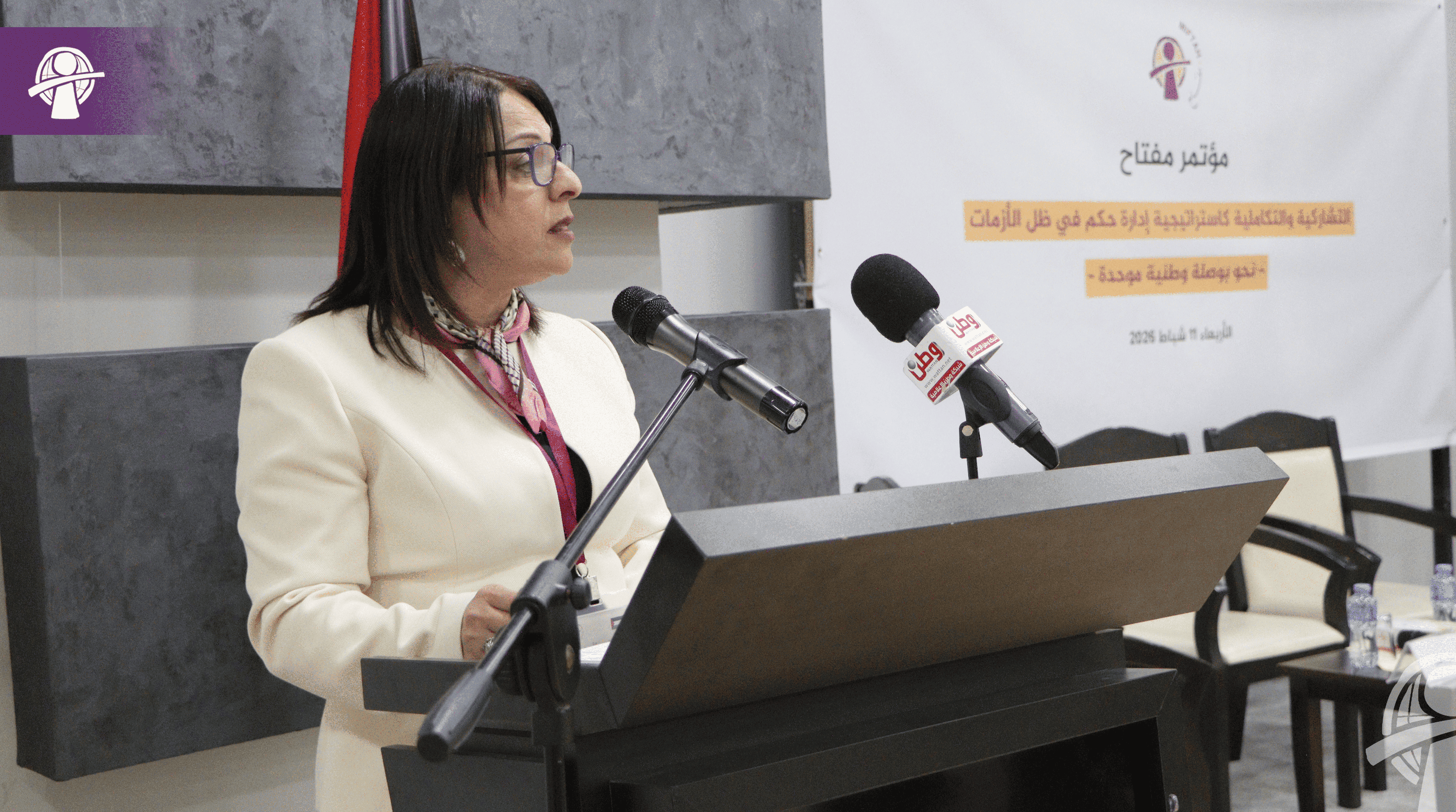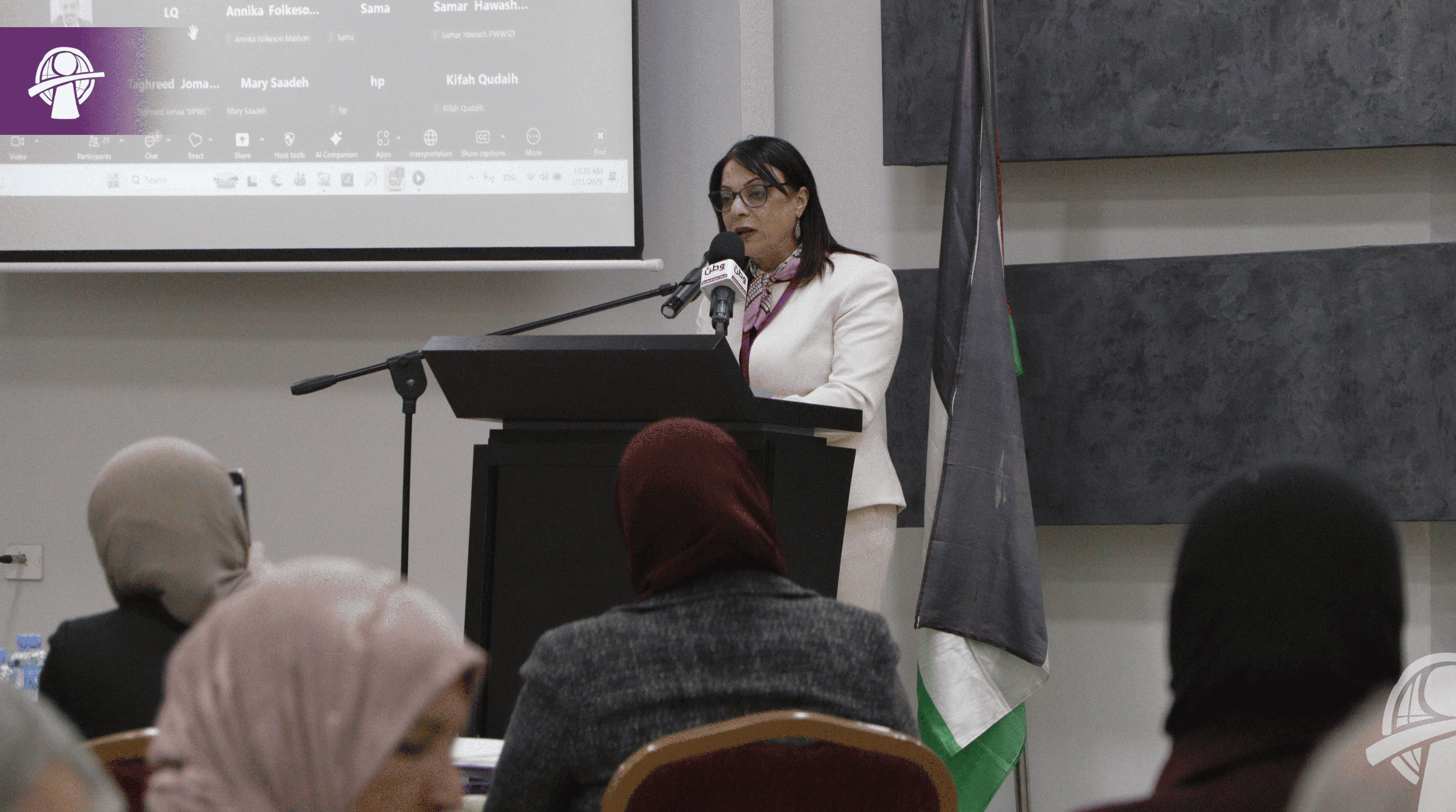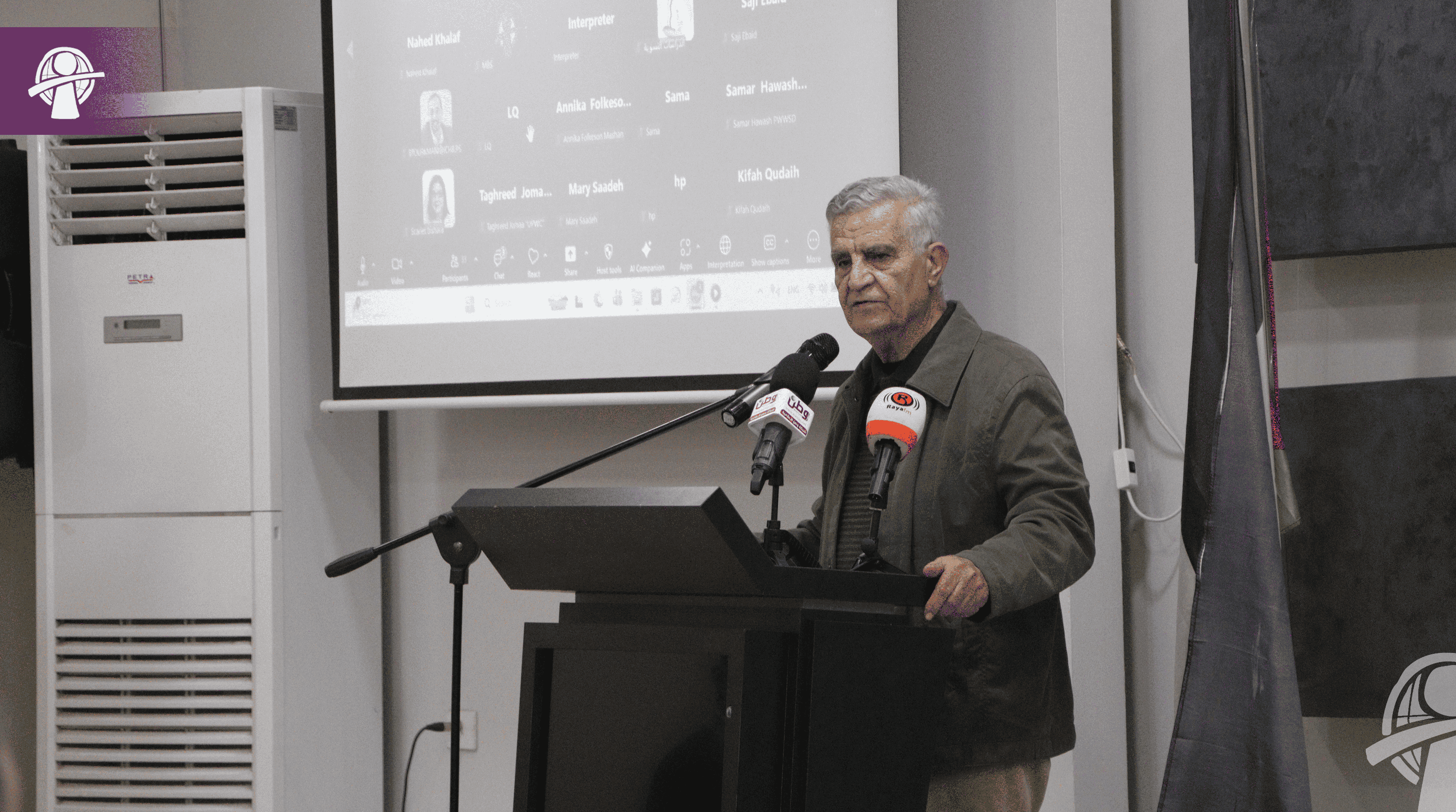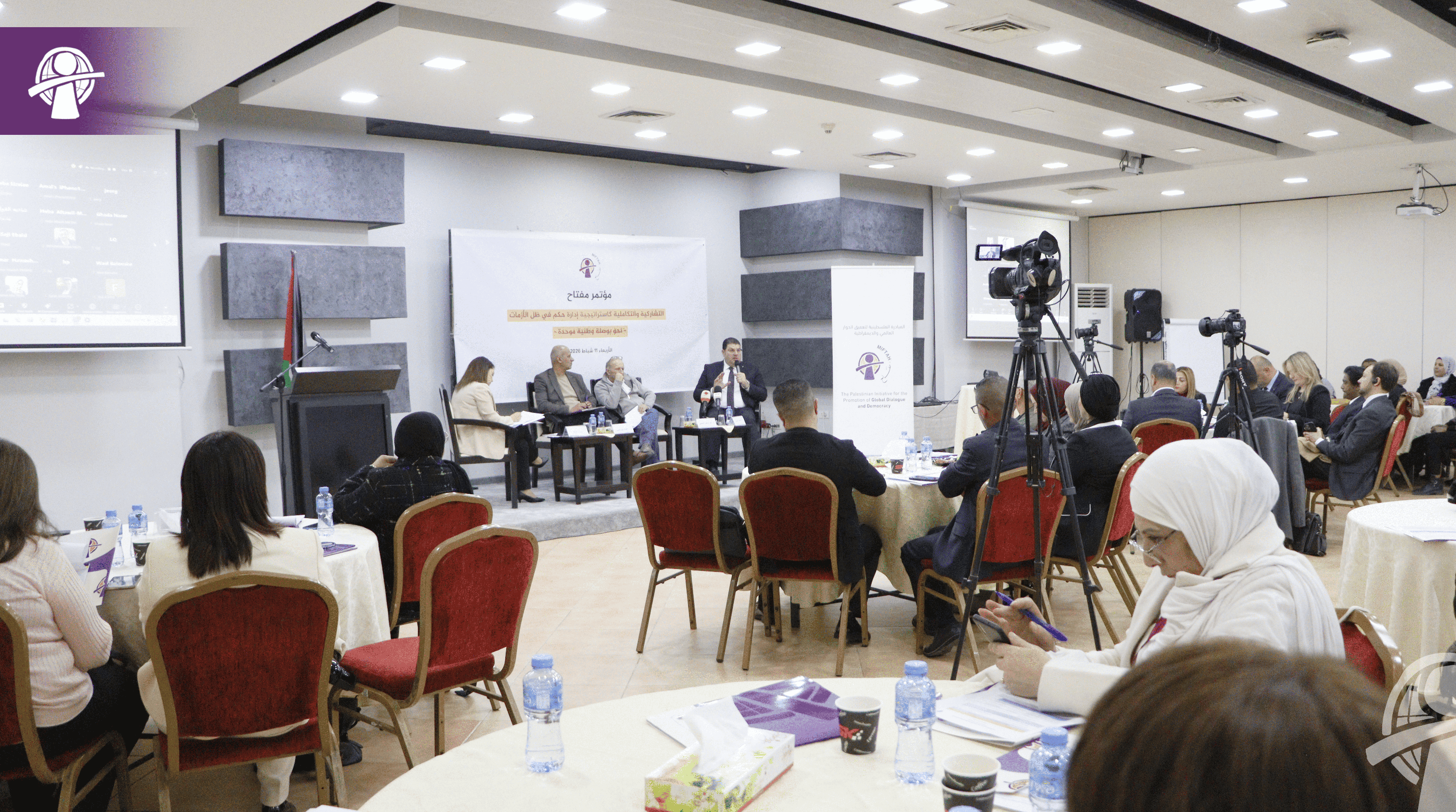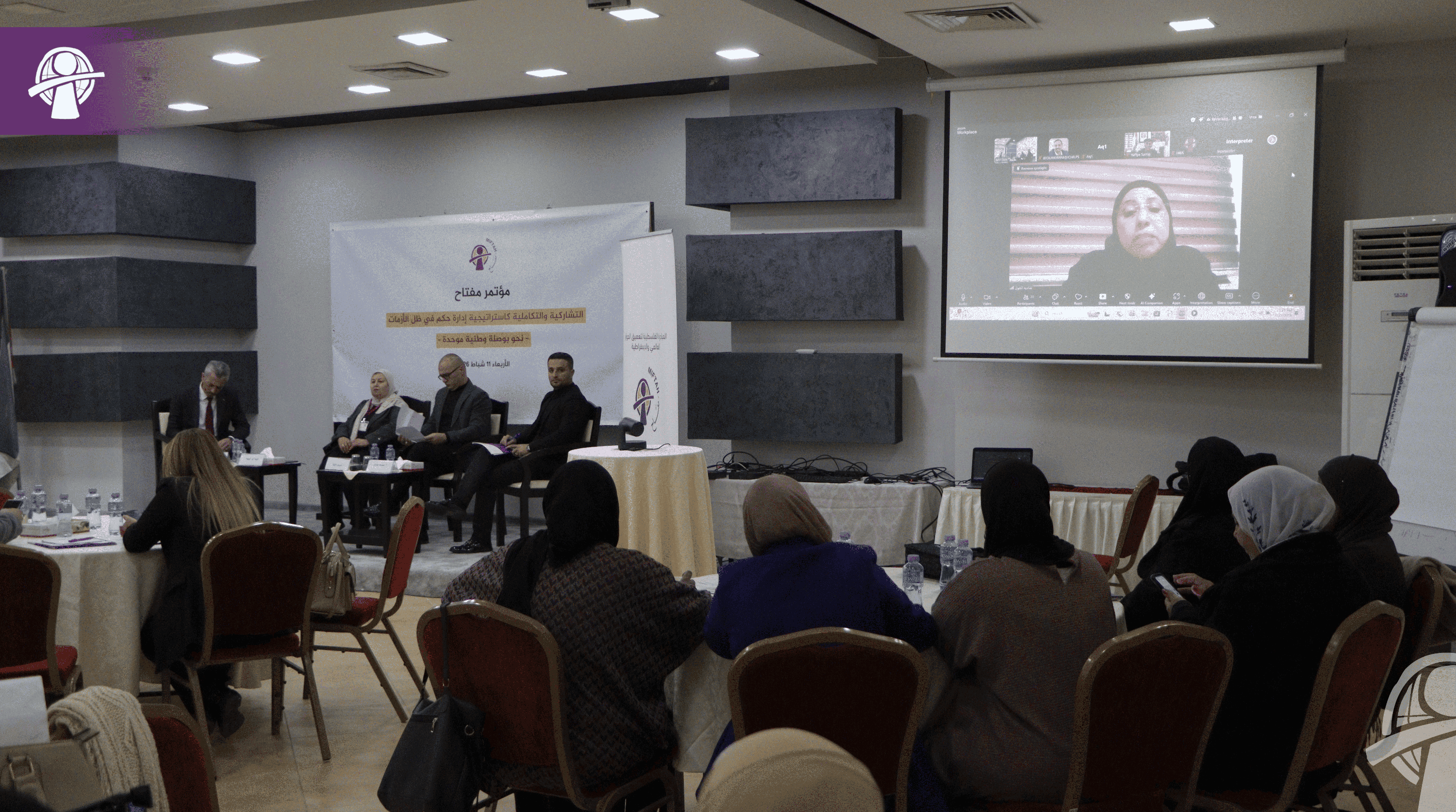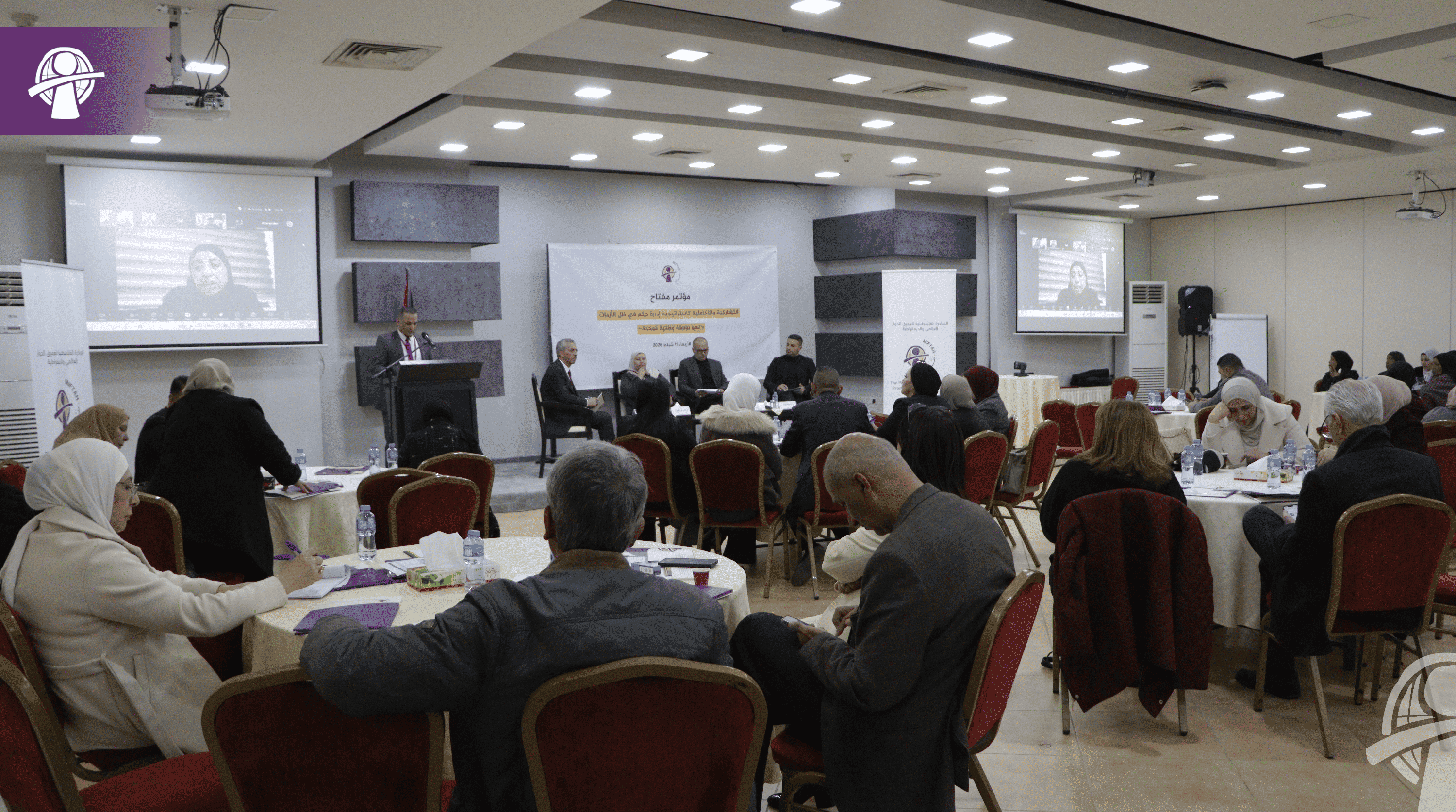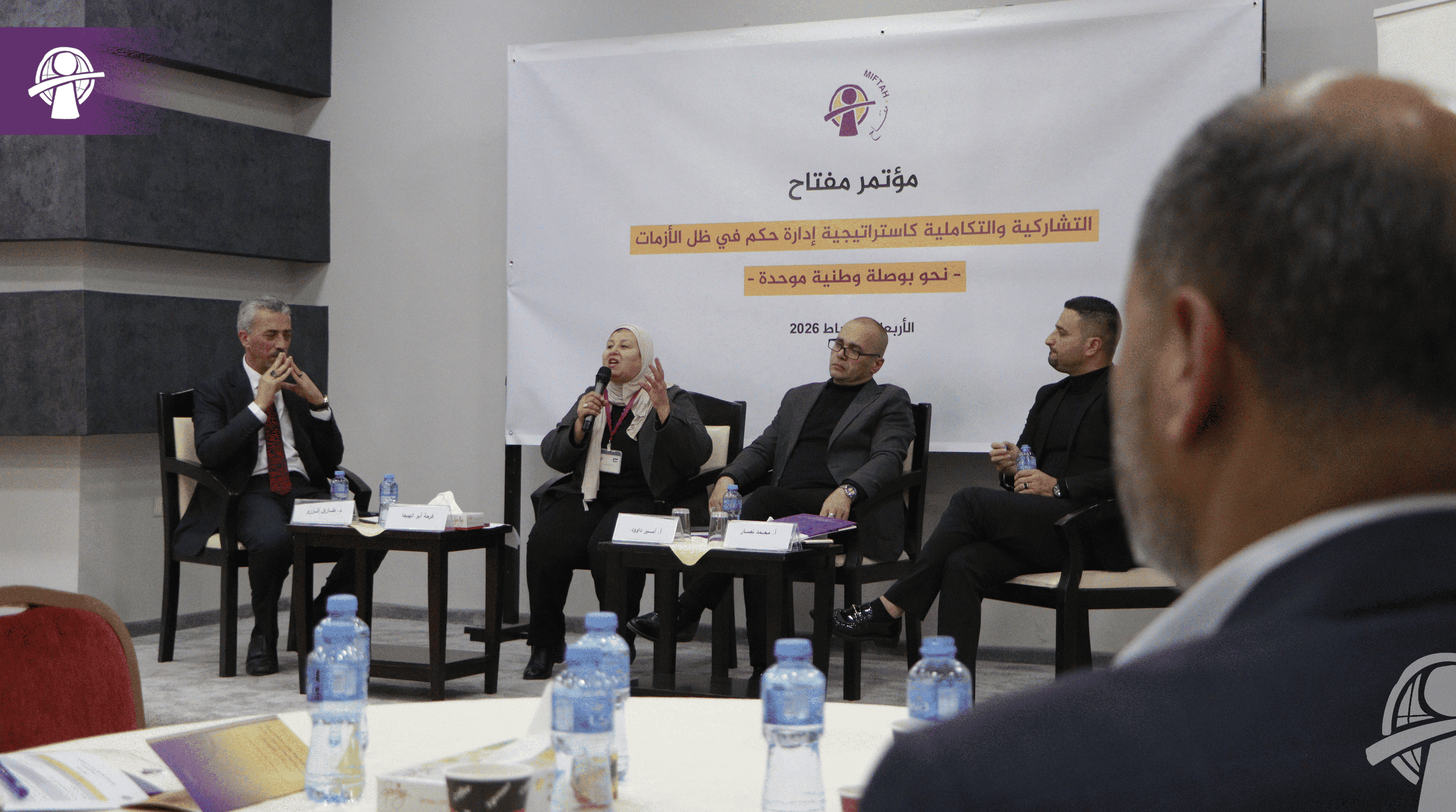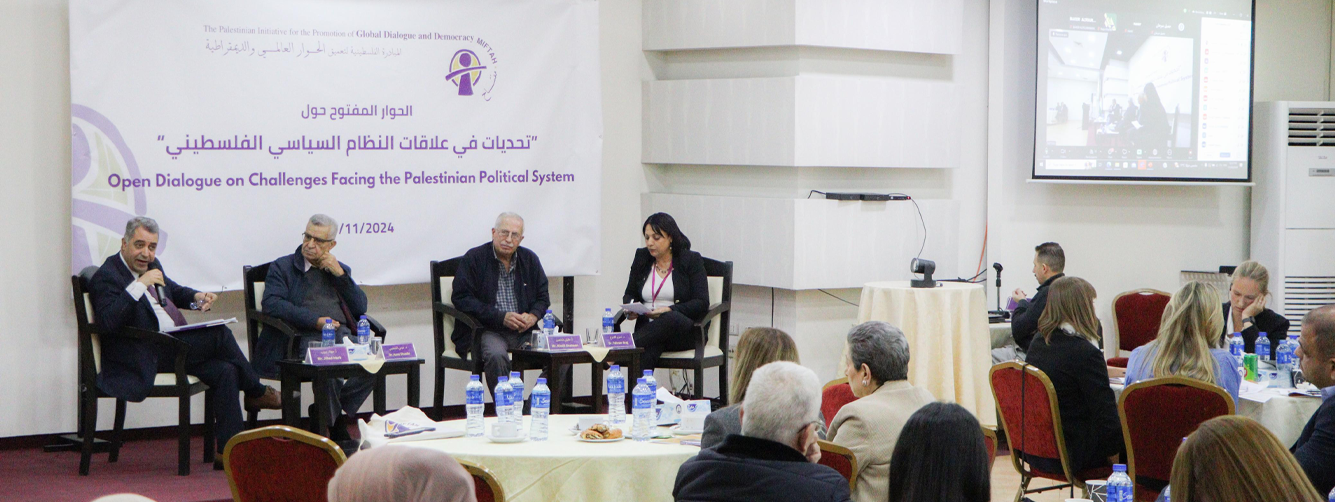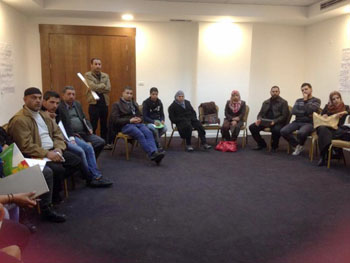
Ramallah – Mahmoud Rasheed Taqatqa ‘Abu Rashid’ is the head of Um Salamuna’s village council in the Bethlehem district. In spite his age – he is in his sixties – he insisted on participating in the “Tajawoob” training sessions, organized by five Palestinian and international organizations .
The project, according to CEO of MIFTAH, Dr. Lily Feidy, is funded by the British Department for International Development [DFID] and carried out by an institutional union headed by the British Council. This union includes MIFTAH, AMAN, Pal Vision, a youth organization aimed at empowering Palestinian youth in east Jerusalem, and the BBC’s International Development Fund. The project’s duration is until the end of 2015.
Of course, Abu Rashid was not the only participant in the room. The room was full of young men and women from Um Salamuna, all listening, discussing and sometimes arguing with the trainers, Ruham Nimri and Muammar Kilani. The heated discussions mostly came up when issues such as social norms and values were broached, along with issues such as the perception of women, the idea of her personal freedom and her right to education and participation.
The opinions were very different sometimes but the discussion always revolved around how to develop these concepts more positively in a context of rights and duties without completely clashing with social and cultural norms. The goal was for the participants to develop their views on these issues and later participate in slowly changing these norms.
That is why Abu Rashid was so insistent on attending and contributing. The young men and women of Um Salamuna also gave their input such as university students. Firyal Taqatqa, the head of the women’s association in the village was also there, along with her husband, a village council member.
This is not the first training course offered by MIFTAH that Abu Rashid participates in, but he says this time it was different because of the ideas that were being discussed. He even encouraged other people from his village to join, a village with a population of 1,000 people. Um Salamuna is a marginalized village on the rural outskirts of Bethlehem.
There are two female members of Um Salamuna’s village council but they don’t attend the council meetings. Abu Rashid puts the blame for this on the quota system, which imposes the presence of women in the council. Hence, when the time came to choose the two female members, it was only to fill the quota and nothing more.
Abu Rashid hopes that his and his fellow villagers’ participation in the Tajawob training will benefit Um Salamuna and change some of the prevalent norms in their community.
Firyal Taqatqa feels the same way. “I have been to several meetings before, which were focused on capacity-building and other educational issues, but these meetings and trainings have been the most beneficial for me and my colleagues,” she says, “especially since they broach important subjects in our society, including equality between men and women and ways of empowering women in their communities.”
After this latest training, Firyal is aspiring to become a member of Um Salamuna’s village council even though her husband is already a member. “Like Abu Rasheed said, the quota system currently in place is the reason why the two women members of the council are not active and do not even participate in the sessions,” she said.
She will not be deterred however. Firyal insists on continuing to participate in training courses and educational and participatory meetings, saying she hopes MIFTAH, its partners and supporters will continue to support them.
University student Hayyan Taqatqa from the same village, was an active participant in the two day discussions, especially when it came to talking about women’s liberties, their right to education and the definition of liberties and rights. The attendees discussed women’s education at length, with some supporting the education of women within socially accepted norms, and others who called for equal opportunities between women and men in education.
Hayyan said he believes that change in the culture must be slow, adding that the training given by MIFTAH and its partners offers an opportunity for the participants to contribute to making the required change, especially after certain facts about prevalent social values and concepts were clarified.
The village of Faroush Beit Dajan in the Jordan Valley was also part of the training course, given by trainer Oday Abu Karsh and Jihan Badawi. Imad Ismail, member of the Froush Beit Dajan village council and coordinator for its media committee did not hide his advocacy and support for women. He says he comes from a school of thought that believes in this right, even though he thinks the quota system for local councils is ‘provoking”, saying it does not give women the status and role they deserve.
He says the women of his village are unique, considering them all pioneers. “Our village is in Area C and our homes are made from corrugated iron. What woman agrees to live with her life partner under such circumstances? And then take on all the responsibilities of managing the house, cultivating the land and raising the livestock, not to mention all the other responsibilities they take on such as managing projects. They all deserve our appreciation and respect,” Ismail says.
Ismail, who said the workshops offered an important platform for understanding the meaning of women’s participation, also offered a snapshot of his village. “We are a population of around 1,200 people. We have tremendous livestock resources, with over 30,000 heads of sheep. We used to have land with an area of 13,000 dunams, but the Israelis left us with only 2,000. “
He also says that the two women members of the village council do not actively participate because of social pressures or by their own choice, but maintained that such workshops like MIFTAH’s have even strengthened his own personal concepts towards the role of women. “Perhaps this will have an impact on the participants as well, not only about women but also about a lot of concepts that are so prevalent in society,” Ismail says.
University graduate Anwar Sadeq says just making it to the workshop is a huge achievement, but said her father has always supported her towards learning and participation. “Even though I went to university and got an education, some of the issues that were posed in the training broadened my own awareness about certain concepts and made a huge change in how I understand social and political issues that we never really understood before.”
Now Anwar says she will not hesitate to run in local council elections in Froush Beit Dajan if she gets the chance. “Right now, I want to encourage the women members in the council to participate in making decisions. Like my father always tells me: “If you can’t do anything, you should just step away. You don’t need to be a doorknob.”
The KUMI methodology
Trainer Ruham Nimri said the training course was based on the KUMI methodology for social transformation in conflict. It is an approach that deals with deep cultures and structures of societies in places of conflict both internally and externally. The methodology delves into the deep cultures of these societies as well as establishing a set of new values and concepts, most significantly the concept of basic human needs and working towards fulfilling these needs as a condition for social transformation in conflict. The methodology also reveals the timelines of such social concepts and values, their origins and the social and cultural environment prevailing when they first emerged, in addition to understanding how these cultural and social values are being translated into deep structures, such as laws and structures of society that support and feed these cultural and social values. It is usually very difficult for participants to discuss such issues, since they become very sacred, and any attempt to question such values becomes a direct threat to their own “believes”. The premise is the shift to social transformation of conflicts rather than conflict resolution.
The subjects broached during the most recent workshops included the status of women in the targeted communities and the ways in which participants dealt with this subject. It was clear that the positions of the participants at the beginning of the workshop drastically varied from their positions today, even though originally, they were against any process for empowering women. However, at the end of day five, the participants even wanted to add more goals such as: the right of women to make their own decisions and empowering women in society.



